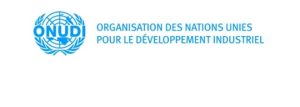Presentation of the
Prickly pear
The prickly pear, long time considered the fruit of the poor, is now recognized as a real source of socio-economic development in Tunisia. The potential of the hindi fruit - as it is called in the local dialect – does not need to be proven any longer. Organic prickly pear seed oil, a dermatological anti-aging product, is nowadays considered the flagship product of the Tunisian cosmetics sector.


The prickly pear industry has already received support in the framework of the PAMPAT1 When the first phase of the project started in 2013, the value chain was barely developed. There were only five processing companies in Tunisia, prickly pear products were unknown and the hopes placed in this sector were very limited.
Today, the sector already counts 35 companies, the demand for prickly pear products continues to increase and the private sector is organized around the National Cactus Development Association ANADEC. The sector's development objectives have therefore become much more ambitious. Tunisia aims at becoming a leading country in this sector, both regarding agri-food and cosmetics.
The PAMPAT 2 project will continue working closely with the Ministry of Agriculture, the Interprofessional Group of Fruits (GIFRUITS) and the Export Promotion Center (CEPEX) to further support the development of the prickly pear industry in Tunisia. The dynamism and growth recorded by the sector in recent years point to a strong development in the future.
The Inspiring Story Of Fatma Taamallah( BIOVALLEY)
Fatma Taamallah is the founder of Biovalley, a Tunisian cosmetics company that was created in 2022 in the inner region of Kairouan and that specializes in the production of organic prickly pear seed oil products. In the last years, UNIDO has been supporting Biovalley to improve its international competitiveness and market access. The company has been receiving assistance to participate at international trade fairs in France, Italy and Spain and at several B2B events. In this context, the results of the clinical studies developed with UNIDO support that have proven the anti-wrinkle effect of Tunisian cactus seed oil have always been providing crucial sales arguments to Ms. Taamallah. Equally important has been the assistance received to obtain the ISO 22716 certification for good manufacturing practices in cosmetics. Furthermore, Biovalley has received support to improve its online presence and to develop an e-commerce strategy.

Biovalley’s products are now sold in Germany, Poland, Spain, France, and Switzerland. The increasing demand for its products have led the company to set up a new production site in the capital Tunis. Today Biovalley has become one of Tunisia’s top exporters of certified organic prickly pear seed oil on the European market.
In order to further spur the growth of the Tunisian cactus seed oil sector, Ms. Taamallah serves as Vice President of the Tunisian Cactus Development Association (ANADEC) that represents SMEs from the private sector and receives UNIDO support to promote the inclusive industrial development of the whole Tunisian prickly pear value chain.
More documents and videos relatifs à la filière sont disponibles ici :
![]() Facebook page to promote the Tunisian prickly pear
Facebook page to promote the Tunisian prickly pear
![]() Website of the Tunisian Association for the Development of Cactus
Website of the Tunisian Association for the Development of Cactus
Project for Market Access of Typical Agrofood Products (PAMPAT Tunisia) funded by the State Secretariat for Economic Affairs of the Swiss Confederation (SECO) and implemented by the United Nations Industrial Development Organization (UNIDO) in close cooperation with the Ministry of Economy, Finances and Investment Support, the Ministry of Industry, Energy and Mining and the Ministry of Agriculture, Hydraulic Ressources and Fisheries.


